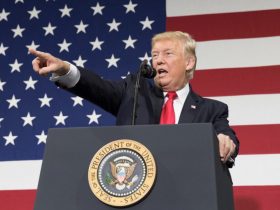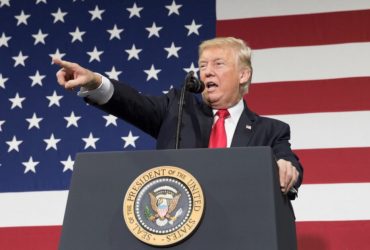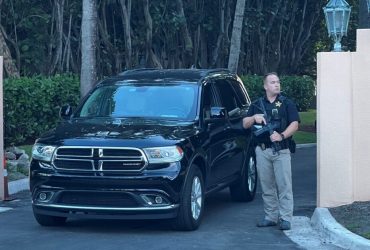By RealClearInvestigations:
The Auberge du Soleil, a five-star hillside hotel and spa with a panoramic view overlooking the vineyards of Napa Valley, appears to be first-rate in all ways but one. While the glamorous resort, an hour’s drive from San Francisco, fills rooms that routinely go for $2,000 a night with A-list celebrities and tech titans, financial records suggest it did not provide much of a return to at least two of its investors – Rep. Nancy Pelosi and her husband, Paul. That changed when it received millions in congressionally authorized COVID-19 relief in 2020 and 2021.
The Auberge du Soleil investment, held for decades by Paul Pelosi, has rarely turned a significant profit, according to Nancy’s financial disclosure forms. In some years, he has recorded a loss or a profit of between $50,000 to $100,000. But the year of the bailout money stands apart. In 2021, Pelosi’s ethics forms show that her family’s income from the resort surged to a range of $1 million to $5 million.
The French Riviera-themed resort may not be most people’s idea of a struggling business in need of a government bailout, yet the Auberge du Soleil – which shuttered briefly at the outset of the pandemic before swiftly rebounding – received about $9 million from a series of special taxpayer-funded emergency relief programs.
The previously unreported windfall is among several COVID bailouts that flowed to Pelosi-backed restaurants, hotels, and properties, including several Courtyard Marriott hotels.
A RealClearInvestigations analysis found that Pelosi’s profits spiked from a variety of holdings that won significant government rescue funds – which amounted to $28 million, a total more than previously known. For their family’s stake in the Auberge du Soleil, the Pelosis received more income in 2021, when bailout funds channeled to the resort, than any other time over the last 10 years.
Pelosi is hardly alone among lawmakers whose businesses reaped awards from pandemic-era financial programs designed for small businesses. Rep. Greg Pence, the brother of the former vice president, received $79,441. Rep. Dean Phillips, who briefly campaigned in the Democratic presidential primary, is an investor in a small event production company, Geniecast, that received two forgivable loans that totaled $373,185. Other members with investments in car dealerships and restaurant companies also received scrutiny over COVID rescue funds.
Yet Pelosi’s personal stake in the unprecedented taxpayer gusher has never been fully explored. Pelosi, during her previous stint as leader of the House of Representatives, shepherded all federal COVID stimulus measures, which totaled about $5.5 trillion – one of the largest domestic spending efforts in U.S. history outside of wartime. “These Republicans seem to have an endless tolerance for other people’s sadness,” said Pelosi at a press conference in December 2020, admonishing her opposition for delays in passing additional pandemic spending programs. The programs were touted as disaster measures designed to save the economy and help needy businesses and families.
The exact amount of Pelosi’s profits from the Auberge Du Soleil is unclear. The hotel is a privately held company, and the lawmakers file ethics reports that show a range of income and assets rather than a precise amount. Her office did not respond to a request for comment.
The former House Speaker has gained notoriety over her husband’s well-timed stock trades. Her husband, Paul Pelosi, 84, is an investor who has long dabbled in real estate. Fortune magazine, among other outlets, has reported on his unusually high gains from trading call options for technology-related stocks.
The Pelosi household earned over 65% on trades last year, according to an analysis from Unusual Whales, one of several sites that track congressional trading activity. That record outshines even the most successful hedge fund managers.
Pelosi’s wealth has surged over her time in office. Disclosures show her net worth went from approximately $18 million in 1991 to nearly $250 million last year. “The Speaker has no prior knowledge or subsequent involvement in any transaction,” Pelosi’s spokesperson has told outlets in the past over questions about the trades. Her office did not respond to RCI’s request for comment.
The COVID-related relief lavished on the Pelosi family’s private investment holdings has gone largely unnoticed.
Early in the pandemic, there were scattered reports about lawmakers from both parties who stood to gain financially from the initial Paycheck Protection Program (PPP). The small business rescue fund, reporters at Roll Call noted in July 2020, awarded forgivable loans to Piatti, an Italian chain, and a firm tied to the El Dorado, a small hotel in Sonoma County, both owned in part by Pelosi. The Pelosi-linked PPP loans disclosed by the media totaled around $2.4 million.
That figure scratches the surface. Newly discovered government disclosures show that Pelosi’s private holdings, such as the Auberge du Soleil resort, received upwards of $28 million in pandemic-related taxpayer funds, including the PPP, the COVID-19 Economic Injury Disaster Loan, and a special grant program for restaurants.
Much of the additional funding came from the second and third wave of pandemic stimulus legislation, passed in December 2020 and March 2021, that authorized an additional $2 trillion in cash and forgivable loans for needy individuals, businesses, and local governments. The additional rounds of spending effectively doubled the initial $2.1 trillion of CARES Act funds that began in March 2020. The new legislation authorized a second wave of PPP loans, along with billions of dollars in grants to theaters, restaurants, and travel companies impacted by the crisis.
After the initial outcry over lawmakers reaping financial awards from the bailout programs they had authorized, Congress tightened the eligibility standards. These rules included a prohibition on PPP loans extended to companies in which lawmakers or their spouses owned a “controlling interest,” which the Small Business Administration has defined as an ownership stake of at least 20%.
It is not clear if Pelosi violated any of the ethics rules. None of her family’s holdings in businesses that received PPP loans is mentioned in her ethics disclosures – suggesting the family’s stakes fell below the reporting threshold.
Nevertheless, the Pelosis profited handsomely from the bailout funds she advocated for as speaker of the House. The Restaurant Revitalization Fund, one of the additional programs launched by the new round of pandemic spending, provided $5 million to the Auberge du Soleil in June 2021. The funds were not restricted by congressional ownership of the underlying business entities. The resort also won a second PPP loan that totaled about $2 million in 2021. The first PPP loan, awarded the previous year, provided $2.9 million – helping the Pelosis earn millions on an investment that has rarely turned a significant profit, according to Nancy’s ethics disclosures.
This was also the case for the Piatti Restaurant Company, the California-based pizza and Italian restaurant chain owned in part by Pelosi, which ended up receiving about $15 million in a mix of PPP and RRF grants and forgiven loans. The Pelosi household, in turn, received up to $1 million in partnership income distributions from their investment in the restaurant in 2021, the year that the company received the bulk of the government assistance.
The investment return that year from Piatti was also the highest in over a decade for the Pelosis. In previous years, they typically earned less than $50,000 from their stake in the pizza chain.
The taxpayer assistance to the Pelosi-backed resorts and restaurants may have come at the expense of other struggling businesses. In total, the Auberge du Soleil and Piatti won over $14.2 million in Restaurant Revitalization Fund grants, money that was shepherded through Congress by Pelosi and authorized by President Biden’s signature American Rescue Plan legislation. Most applicants were not as fortunate. Less than a third of the eateries, pubs and diners that sought funding from the program were approved, and the fund was quickly depleted after it opened.
The billions of dollars in COVID money was cast as a targeted measure to save the economy. More recent analysis has found the rushed programs were poorly designed and were a significant factor in the high levels of inflation experienced over the last four years.
Estimates of how much government money was misspent widely vary. The Associated Press reported that fraudsters potentially stole more than $280 billion from the assorted pandemic relief programs. A Senate report noted that wasted and abused pandemic funding ended up in the form of “Lamborghinis, luxury vacations, extravagant jewelry, and even an alpaca farm.”
“The sheer amount of taxpayer losses due to pandemic relief fraud and abuse,” noted Craig Eyermann, a fellow at the Independent Institute, was on the “order of hundreds of billions of dollars.”
There is no indication that the Pelosis did anything illegal. But Eyermann and other ethics experts argue the funds posed conflict of interest issues. He’s not surprised that wealthy lawmakers tapped COVID-related largesse. “To even pursue it,” he added, “they put themselves ahead of those who truly needed it.”
BREAKING: Records reveal millionaires Nancy and Paul Pelosi cashed in on federal COVID bailoutshttps://t.co/oRsAl6JGUV
— Paul Sperry (@paulsperry_) December 19, 2024
This RealClearInvestigations article was republished by The Gateway Pundit with permission.
The post Records Reveal Nancy and Paul Pelosi Cashed in on Federal Covid Bailouts appeared first on The Gateway Pundit.











